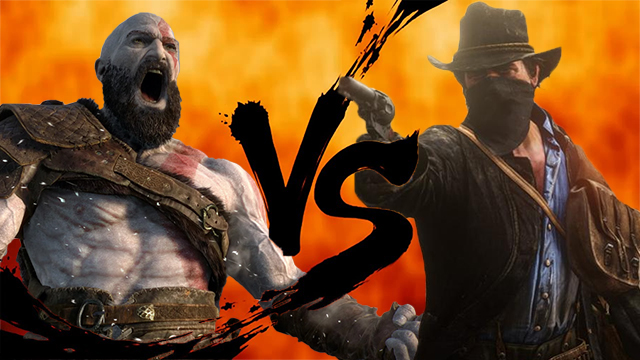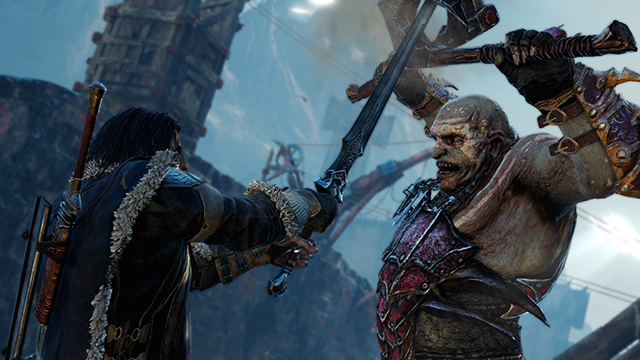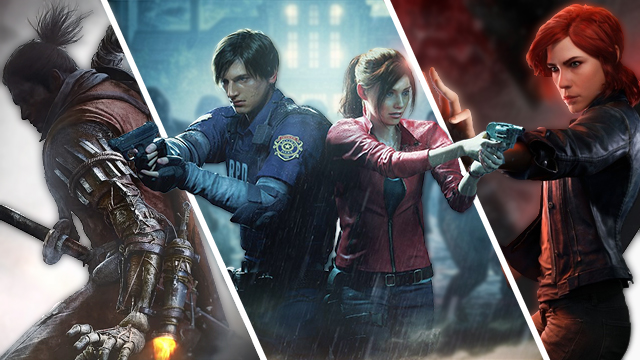Last year, two AAA juggernauts bifurcated almost every outlet’s Game of the Year: Red Dead Redemption 2 and, our winner, God of War. But 2019 is not so clear cut. Different members of the media are pinning medals on the jacket of Sekiro: Shadows Die Twice, Outer Wilds, Control, Rage 2, and the Resident Evil 2 remake as well as recognizing other strong contenders like Death Stranding, Disco Elysium, and The Outer Worlds. While some bemoan the lack of a clear “winner” as evidence of a weak year, the array of choices only shows how exciting it is for these awards to not have a distinct and obvious duo of front-runners.
Reflecting on the year

Game of the Year articles let websites to put up content in the staff’s festive absence but they also allow everyone, as an industry, to come together and collectively reflect on the year. Video game culture is so obsessed with what’s next that it’s almost as if we need to carve out these two or so weeks to remember to stop and look back.
Good-spiritual discussions around everyone’s favorite game of the last dozen months is a positive version of The Discourse™ that can usually be quite tiring at any other time. Unless you work at a media outlet, these discussions are more suited toward those who aren’t there to argue and come to a consensus, but to listen to other viewpoints and how certain people or websites reflect on the year. Anime avatars are going to try to poison the well and scream about Polygon’s “wrong” number one pick, but anime avatars are often not suited to listen, which is a big part of absorbing Game of the Year material.
ALSO: Top 50 best games of 2019
Reflective sessions in most years, like in 2018, are a little less interesting when they’re mostly split between two titans. It narrows the scope of the discourse concerning the year’s best between only a pair of excellent titles. A variety of unique experiences brings a variety of unique discussions in a way that arguing about a slow cowboy and beefy Greek boy doesn’t.
It’s more interesting and creatively liberating to compare a litany of titles and listen to how people or outlets weigh each game’s positive qualities. How does Disco Elysium’s goofy but engrossing dialogue options stack up to Sekiro’s tough, unforgettable boss fights? How does Death Stranding’s overly long story of weird but compelling characters compare to The Outer Worlds’ traditional, yet immaculately told tale about galactic late stage capitalism? Or does the meme power of the goose take all? These diverse deliberations and different takes open us up and get us talking about, listening to, and hopefully understanding different viewpoints, which is an empathetic exercise that improves criticism.
An vibrant, well-rounded industry

A variety of superb titles is also a sign of a healthier industry. Instead of just a typical action adventure title vying for the top spot, we have a CRPG, third-person shooter, horror, and adventure game about delivering packages and literally rocking a baby to sleep all duking it out and any could feasibly take home the gold. Since all of these are going right up against more traditional GOTY material, it means that these unorthodox genres with a range of budgets are performing at their best. Essentially, they are competing with — and sometimes besting — other genres that perceived to be better and more popular.
Even other games that didn’t quite make the cut demonstrate this medley of experiences. Mortal Kombat 11 was a kick-ass 2D fighter that demonstrated NetherRealm’s ability to continually top its storytelling capabilities in a genre thought to be ill-suited for the task. A Plague Tale: Innocence showed that a mid-range title can still resonate with players despite a comparatively smaller budget. Apex Legends breathed life into battle royales, a mode many bemoaned and pigeonholed as a short-lived fad. Every year has these sorts of almost-but-not-quite Game of the Year titles that break some sort of barrier, but in 2019, they illustrate how breakthrough experiences from all around weren’t just at the top of the list.
The dark era

But, while rare, there are years where a lack of a clear winner is not a great sign. 2014 is widely regarded as the premium example of a tough year, forcing a dry heave upon those tasked with recollecting that cursed era a half-decade ago when this generation was in its awkward early phase. Not many games raced to the top for Game of the Year nominations and the two that did were hard to argue for then and are hardly remembered today.
Dragon Age: Inquisition is a solid RPG and Middle-earth: Shadow of Mordor’s Nemesis system is still remarkable, but neither had the je ne sais quoi that keeps Game of the Year candidates in the collective consciousness after they have collected their awards. We still speak about The Witcher 3: Wild Hunt, Overwatch, The Legend of Zelda: Breath of the Wild, and God of War — the last four top winners at The Game Awards — exponentially more than anyone even thinks about 2014’s best.
2019 is not a 2014 and, to be fair, not a 2018 either; it’s better. A vast buffet of disparate experiences across a swath of genres and budgets all cycling through Game of the Year wins is vastly more exciting than just two titles taking turns accepting the year’s highest honor. Listening to a wealth of differing opinions is not only more engaging, but it’s also the sign of a healthier industry that isn’t being completely dominated by one type of game. A year doesn’t need a unanimous standout (or two) to stand out and 2019 showed that off gracefully. 2020’s glut of announced titles is looking strong so hopefully they can all ensure lively, 2019-esque Game of the Year talks come this time next year.







